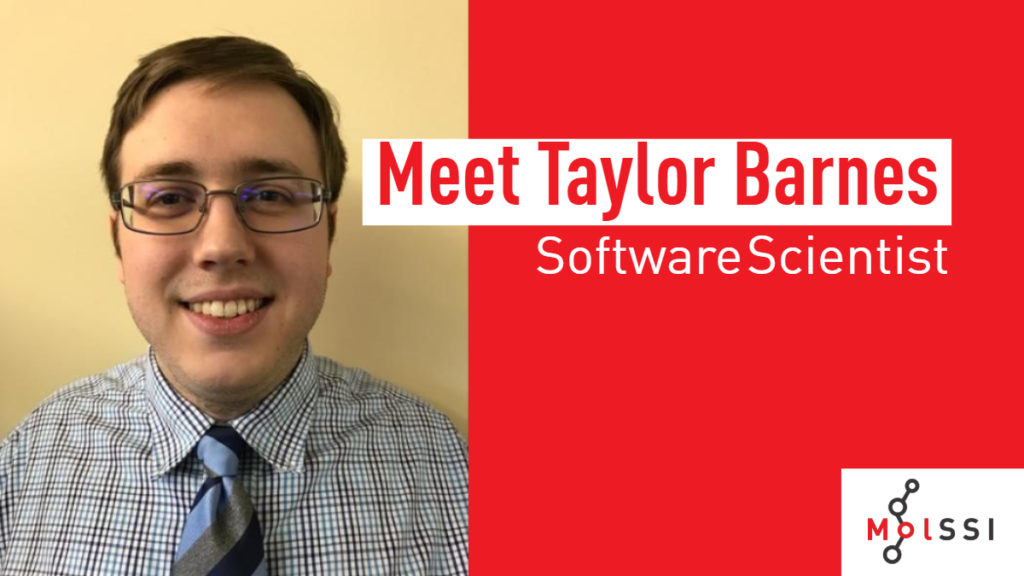
MolSSI Software Scientist: Dr. Taylor Barnes!
At The MolSSI, we have an exceptional team working to create pathways for solving the NSF’s Grand Challenges. Over the next several months, we’ll be introducing each of our staff to you in order to celebrate their impact on The MolSSI.
Dr. Taylor Barnes is a graduate of Caltech, who completed postdoctoral work at the National Energy Research Scientific Computing Center.
Taylor discovered his path much younger than most. “My first experience with a computer was at the age of 18 months,” Taylor said. “I was hooked and continued to explore in subsequent years. Some of the first books I read were programming textbooks.” He’s come a long way since that first experience with an MS-DOS computer, now having worked with some of the most powerful supercomputers in the world at Oak Ridge National Laboratory and Lawrence Berkeley National Laboratory.
Discovering his passion for computers at one and a half was the start to Taylor’s early career. By 13, Taylor was applying to college. “Finding an institution that would allow a thirteen-year-old into a college chemistry laboratory was challenging,” he said. “I eventually enrolled in a local community college (Hinds Community College in Raymond, MS), where I was able to take freshman-level chemistry.” He then transferred to Middle Tennessee State University. “When I was finally old enough to apply for a driver’s license, the DMV insisted that I was legally required to show proof of enrollment at a high school, and that college enrollment doesn’t count. Fortunately, the officers at another location were more understanding, and I was still able to obtain my driver’s license.”
Taylor’s background is in quantum chemistry and high-performance computing, using computers to learn about chemical systems. “Inevitably, I found that the hardest problems I faced were computational, not chemical,” he explained. “Despite this, neither I nor most of my colleagues had any formal computer science training. Having even a modicum of direction regarding programming best practices would have saved me countless hours of floundering and reinventing the wheel.”
This was a conclusion that Taylor came to over and over again during his studies. “During my graduate and postdoctoral studies, I reached the conclusion that the most urgent problems facing the computational molecular sciences community were all software-related, but I didn’t see many opportunities to address these challenges in existing career options,” he said. “I believe that The MolSSI is the place where I can have the largest impact on the computational molecular sciences community. Working at The MolSSI is an opportunity to help a new generation of computational chemists avoid the same mistakes.”
Taylor’s specific work at the MolSSI focuses on code interoperability: ensuring multiple codes can work together in complex simulations. “This is the sort of broad, community-spanning problem that an organization like MolSSI is especially well suited to address,” Taylor explained. “Being able to lead projects like this is a privilege that is rare anywhere else.”
We greatly appreciate Taylor’s work at the MolSSI, and for his drive to make a positive impact in our community. Thank you, Taylor, for being a part of our team!
